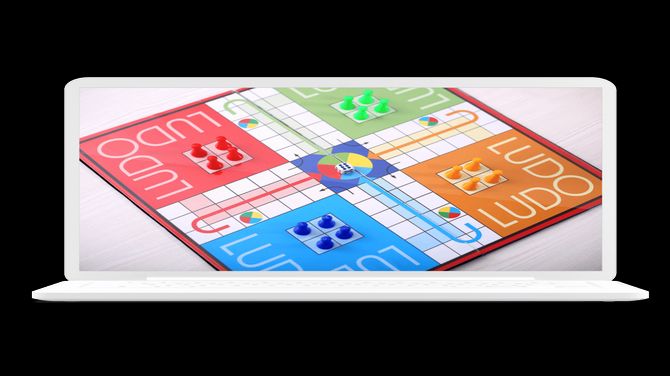Rummy vs. Ludo Game Development: Key Differences and Similarities

In the rapidly evolving world of mobile gaming, two popular genres—Rummy and Ludo—have captured the attention of millions of players globally. Both games offer unique experiences, yet they differ significantly in terms of development requirements, game mechanics, user engagement, and monetization strategies. For businesses and developers looking to tap into these markets, understanding the distinctions and commonalities can help in creating successful gaming applications.
This article will explore the key differences and similarities between Rummy game development and Ludo game development and offer insights for businesses collaborating with a Ludo game development company or Rummy game developers.
Understanding the Core of Each Game
Rummy: A Card Game with Strategic Depth
Rummy is a card game that requires strategic thinking, planning, and skill. Popular in many countries, Rummy games often involve players competing to form specific card sequences or sets. The game attracts users looking for a blend of entertainment and mental challenge, making it an appealing choice for both casual and competitive players.
Ludo: A Dice-Based Family Game
Ludo, on the other hand, is a board game rooted in chance. Known for its simple rules, Ludo has a broad appeal as it’s easy to play, making it popular among friends and families. The game’s luck-based element and straightforward gameplay attract a more casual audience, while online multiplayer options bring competitive dynamics to a wider audience.
Key Differences in Game Development
1. Game Mechanics and Complexity
-
Rummy Game Development: Developing a Rummy game requires a focus on logic, strategic mechanics, and skill-based gameplay. The structure of Rummy games, such as drawing, discarding, and forming sets, demands precise algorithms and rules. Rummy game developers need to ensure that these mechanics are robust and intuitive to engage players effectively.
-
Ludo Game Development: Ludo is inherently simpler, relying more on chance-based mechanics through dice rolls and movement on a board. While it’s easier to code than Rummy, developing Ludo games with multiplayer options, live interaction, and real-time updates adds layers of complexity.
2. Target Audience and Player Engagement
-
Rummy: Rummy games usually target users looking for skill-based games, often involving monetary prizes in competitive formats. Features like private tables, tournaments, and rewards are crucial for player retention and engagement, especially for players invested in winning.
-
Ludo: Ludo primarily appeals to a broad audience of all ages, focusing on casual play. For a Ludo game development company, adding features like customizable boards, themed avatars, and interactive multiplayer modes can enhance user engagement without overly complicating the gameplay.
3. Development Time and Cost
-
Rummy Game Development: The complexity of Rummy’s game mechanics, the need for fair gameplay algorithms, and the inclusion of monetization systems (like secure payment gateways for real-money play) make Rummy development generally more time-consuming and costly.
-
Ludo Game Development: Developing a basic Ludo game takes less time and can be more cost-effective. However, as Ludo’s popularity increases, features like in-game chat, leaderboards, and power-ups are becoming standard. A Ludo game development company should account for these to stay competitive.
4. Monetization Strategies
-
Rummy: Rummy games often generate revenue through entry fees for cash games, subscription models, and tournaments. Rummy game developers must integrate secure payment systems, anti-cheat measures, and compliance with gambling laws to enable smooth monetization.
-
Ludo: Ludo games typically rely on freemium models, where users can play for free but pay for premium features, such as removing ads, unlocking exclusive avatars, or purchasing in-game currency. Ads and in-app purchases are popular monetization methods.
5. Compliance and Legal Considerations
-
Rummy: Due to the game’s real-money aspect, Rummy development must comply with regional gambling laws and regulations. A Rummy game development company will need to consider various compliance standards, including secure user verification, anti-money laundering measures, and fair play practices.
-
Ludo: Ludo games face fewer legal restrictions since they do not typically involve real-money play. However, some Ludo games with in-app purchases still need to comply with app store policies and user data protection laws.
Similarities Between Rummy and Ludo Game Development
Despite the differences, there are several common elements in Rummy and Ludo game development:
1. User Interface and Experience (UI/UX)
- Both Rummy and Ludo require user-friendly interfaces with an emphasis on smooth gameplay and appealing graphics. Designing for a seamless user experience is critical, as users expect intuitive navigation, appealing visuals, and quick response times from both types of games.
2. Multiplayer Capabilities
- Both Rummy and Ludo thrive as multiplayer games. For Rummy, multiplayer involves pairing players with similar skill levels in real-time or scheduled tournaments. For Ludo, a Ludo game development company might focus on features like quick matchmaking, private games with friends, and in-game chat for a more social experience.
3. Cross-Platform Compatibility
- To reach the maximum audience, both Rummy and Ludo games should be compatible across platforms (iOS, Android, Web). This allows users to play on their preferred device and helps increase the game’s user base.
4. Social and Community Features
- Social features are vital for both Rummy and Ludo games, as they enhance engagement and retain players. Both games can include options for in-game chat, leaderboards, friend invites, and community forums to foster a sense of competition and camaraderie.
5. Data Analytics and User Insights
- Data-driven insights are valuable in both Rummy and Ludo game development. Analytics allow developers to understand user behavior, optimize gameplay, and tailor features to meet player expectations. For example, Rummy game developers might track player skill progression, while a Ludo game development company may focus on engagement metrics for multiplayer sessions.
Which Game to Choose for Development?
The choice between Rummy and Ludo game development ultimately depends on your target audience, budget, and business goals:
-
If you’re looking for a high-skill game with competitive elements that can generate revenue through real-money play, Rummy is a great option. Collaborating with skilled Rummy game developers ensures your platform has the essential features and compliance standards for success.
-
If your goal is to capture a broader, casual audience with easy-to-play mechanics and strong social engagement, Ludo is an excellent choice. A Ludo game development company can help you create a fun, family-friendly game with customizable features that keep players coming back.
Conclusion
Both Rummy and Ludo have their own distinct advantages and challenges when it comes to development. While Rummy demands complex game logic, secure payment systems, and compliance with gambling laws, Ludo development emphasizes social features, multiplayer experiences, and engaging visuals. By understanding the core differences and similarities, businesses can make informed decisions on whether to partner with a Rummy game development company or a Ludo game development company to create a successful gaming app.
Whether you choose Rummy or Ludo, delivering a seamless user experience, building a strong community, and using data insights to enhance gameplay are key to creating an engaging, profitable game that appeals to your target audience.

